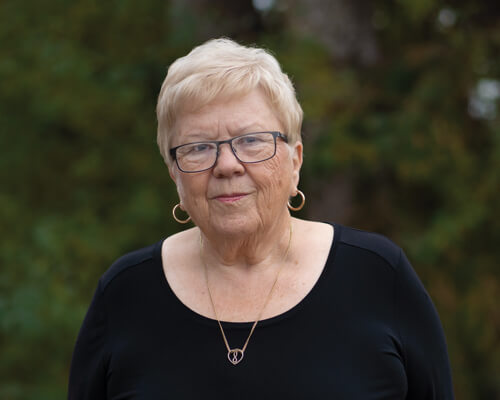Roger
A lot has happened over this past year since the launch of this campaign,
Yes. I live with dementia. Let me help you understand.
I’ve been involved with some really great experiences that hold particular meaning for me. I was diagnosed with young onset Alzheimer’s disease. Although I feel this disease marching on, I am very pleased to say I’m still living well with it.
My hopes and dreams in life haven’t changed and I make it a point to do meaningful things in my life just as anyone else would. If anyone reading this who has been diagnosed with a form of dementia or has a loved one who lives with this disease, I feel this is the first thing you need to know. We all live with a terminal condition. It’s called life. The same thing applies to people with dementia.
Although the experience of dementia is different for each person who has it, it is not uncommon for people with dementia to live a good quality of life for a long time. You see, we are not any different than anyone else. I always try to be empathetic towards people living with this condition called life and to understand the challenges they may be facing. I always make it a point to respect everyone I meet and support people I know in their challenges. We can walk in each other’s shoes and show empathy towards one another and realize our dreams and hopes are no different.
Thanks to the campaign, as a person living with dementia, I feel optimistic for the first time in my life. I can’t help thinking we are at a pivotal point of positive change. I’ll tell you why. Making stigma go away and creating positive change will come from understanding. The way to achieve that understanding is to speak openly about your journey with dementia.
Challenge stigma when you see it. If we do not do this, I promise you stigma will never go away. I challenge Alzheimer’s jokes in social media, like Facebook, and in our communities all the time. I let people know what positive change looks like to me, and I will not let stigma silence me as it does for so many.
Media
January 10, 2019: Alzheimer’s Awareness Month focuses on bolstering both awareness and understanding (via Red Deer Express)
September 18, 2018: “Hello, my name is Roger Marple.” Dementia advocate talks about battling stigma and living well (via Dementia Alliance International)
September 11, 2018 : What are your thoughts on the new Charter of Rights for People with Dementia? With Alzheimer Society of Canada CEO Pauline Tardif and dementia awareness advocate Roger Marple (audio via Stitcher)
September 7, 2018: Alzheimer Society of Canada CEO Pauline Tardif and dementia awareness advocate Roger Marple discuss the first-ever Canadian Charter of Rights for People with Dementia (audio via Stitcher)
March 11, 2018: Living well with dementia: Roger Marple writes about the stigma he’s faced (via the Early Onset Dementia Alberta Foundation)
February 13, 2018: Awareness campaign with Roger Marple is featured in the February issue of Home and LongTerm Care News (via Home and LongTerm Care News)
January 10, 2018: January marks Alzheimer Awareness Month (via Red Deer Express)
January 9, 2018: Hatter selected for national Alzheimer’s awareness campaign (via Medicine Hat News)
January 8, 2018: Living a fulfilled life with Alzheimer’s – Roger Marple’s story (video via Global National)
Comments
We may use your information in order to track your relationship with us and our site(s). We do NOT share your information with third parties.

HERE ARE MY TIPS TO HELP YOU UNDERSTAND:
- There are thousands of people living in our communities with some form of dementia and regardless of their challenges, they are living well every day. Assuming someone with a form of dementia could hear or read your comments towards dementia, would that change how you talk about dementia? If your answer is yes, I see that as a good thing. Think about it.
- I have a philosophy in life. I make it a point to show my utmost respect to everyone I meet. All I ask is the same respect in return. Knock off the dementia jokes.
- Understand that if your life is in some way affected by dementia you experience stigma. The problem is with the person displaying this behaviour, not you. Let it roll off your shoulders. Hold your head high and live well with dementia.
- There are a thousand faces to dementia. Often, we visualize people with dementia in the later stages of the disease, sitting in a wheelchair, staring out a window. That’s just one of many faces to this disease. Dementia does not discriminate and that includes age. When you meet someone with dementia, clear your mind of any preconceived perceptions you may have and see the person for who they are—in the here and now.
- If you’re out and about and see someone experiencing confusion, whether it’s in a grocery store or someone trying to figure out which bus stop to get off at, reach out and offer to help. And I can tell you for sure, anyone with dementia will truly be grateful for one thing—patience.
-
More Stories
-

Carol-Ann
2020
Alberta

ALZHEIMER’S AWARENESS MONTH: STIGMA AND THE NEED FOR UNDERSTANDING. – My Site 1033 days ago
[…] Roger, Naomi, Mario, and Mary Beth allowed us into their lives by sharing their experiences and representing the humanity that is at the core of the campaign. I got to know them through conversations and interviews, along with photo shoots of each of them in Ontario, Alberta, and BC. […]
Is Dementia Mental Health Illness - Dementia Talk Club 1204 days ago
[…] you dont believe us, just read Rogers story. Roger was in a dark place after he was diagnosed with Alzheimers at 57. Now, his outlook couldnt […]
How to Live and AGE-WELL in Moncton - FamliNet 1702 days ago
[…] Read more about how Roger challenges us to look at things differently about dementia at: https://ilivewithdementia.ca/roger […]